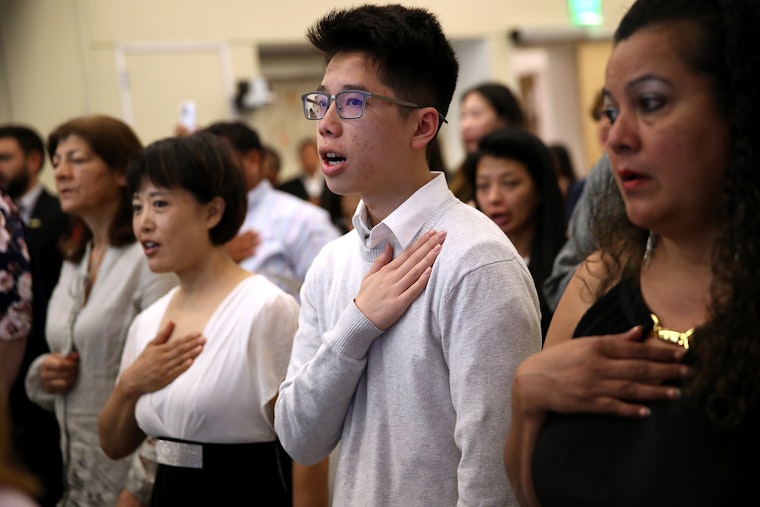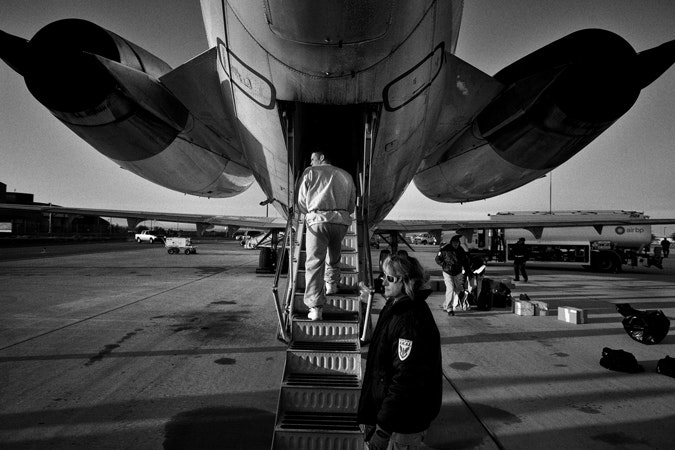The Trump Administration’s Unconscionable Refugee Policy
By Aryeh Neier

The Trump administration is considering a further cut in the already small number of refugees admitted to the United States, according to reporters covering the White House and advocates for refugees. That news does not come as a surprise and it seems evident that the policy goal is tied to the president’s campaign for reelection in 2020. Trump is determined to show that he is making good on the hostility to migrants that he manifested in his presidential campaign in 2016.
The Trump administration set a ceiling of 30,000 refugees to be admitted to the United States in the year beginning last October 1, a much lower number than in previous years. At the time, Secretary of State Mike Pompeo claimed that, “we are and continue to be the most generous nation in the world.” That is a preposterous statement. Canada, with a little more than a tenth of the population of the United States, and an economy a little less than a tenth the size, and with an orderly process for admitting refugees and integrating them into Canadian society, took in 28,100 refugees last year.
Countries with much more limited resources bordering on disaster areas are accepting vastly greater numbers of refugees. Jordan, Lebanon, and Turkey have taken in about five million refugees from the war in Syria; and Latin American countries such as Colombia, Brazil, Ecuador, and a few others have taken in millions fleeing the economic and political disaster in Venezuela.
Over the years, U.S. policy with respect to refugee admissions has fluctuated. On the eve of World War II and during the war, the United States denied admission to most of the Jews fleeing Germany, Austria, and Nazi-occupied Europe. A ship carrying 900 German Jews was turned away from American ports in June 1939 and had to sail back to Europe, where the largest number were admitted by the British. That saved their lives.
The British also admitted my parents, my older sister, and I, who lived in Berlin before the war. We, too, owe our lives to British generosity in that period of desperation when we had no chance to be admitted to the United States, as do many thousands of other Jews fleeing the Nazis.
After World War II, the United States took in a great many more refugees. The largest number were those fleeing repression by communist governments: Hungarians after their failed revolution against the Soviet Union in 1956; Cubans following Fidel Castro’s seizure of power in 1959; Vietnamese, Cambodians, and Laotians after the communist triumphs in Southeast Asia in the early 1970s; Soviet Jews in the 1970s and 1980s; and so on. Some refugees from right-wing military dictatorships in Latin America and elsewhere were admitted as well, but not nearly as many as the number who had been persecuted by leftist regimes.
Since 1975, in the period prior to the Trump administration, the United States accepted an average of about 80,000 refugees a year. In total, the number accepted over four decades is roughly one percent of the American population. I am not aware of any area in which the presence of those accepted as refugees has done harm to the United States. On the other hand, it is apparent that the refugees have contributed a great deal to the country’s cultural richness.
U.S. military leaders have been among those most supportive of refugee admissions because the armed forces have a presence in many countries, including a significant number that are subject to political repression. That is why a group of retired flag officers and admirals sent a letter to President Trump asking him not to reduce admission levels and to match the new level to the current environment. Beyond global political and humanitarian interests, U.S. military leaders want to be able to protect locals, who aid them as translators, guides, drivers, and in other ways by securing their admission to the United States as refugees when they are in danger. Protecting Afghans who have aided American troops may require admitting significant numbers to the United States. If the ceiling on refugee admissions remains as low as it is, that will be difficult.
When Secretary Pompeo boasted of the generosity of the United Sates, he implicitly acknowledged that it is important to many Americans, and to America’s reputation in the world, to do its fair share in conducting itself responsibly and humanely. Slamming the door on refugee admissions is both irresponsible and inhumane.

Aryeh Neier is president emeritus of the Open Society Foundations.


